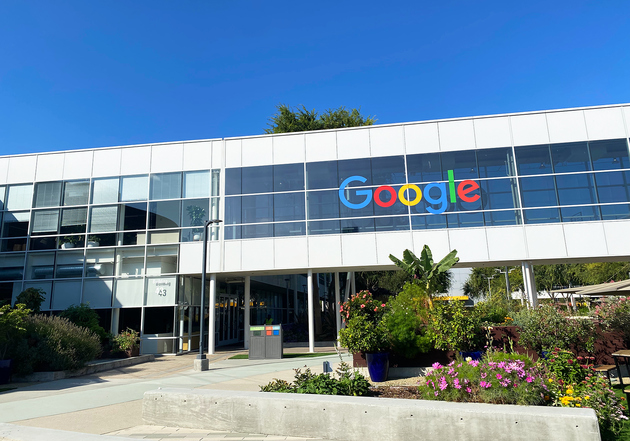
Photo/Zheng Yuhang (NBD)
Since ChatGPT sparked the generative AI wave, tech giants' financial statements have become an important way for the outside world to test the results of their AI investments.
This week, Google, Microsoft, Meta, and Amazon all released their latest financial performance.
Benefiting from the first-mover advantage brought by the OpenAI investment, Microsoft once again took the lead in the competition with Google and other giants.
According to Microsoft's 2024 first quarter (ending September 30) financial report, the company's revenue was $56.52 billion, up 13% year-over-year. The cloud business's revenue was the highest, reaching $24.3 billion, up 19% year-over-year.
On the other hand, according to Google's parent company Alphabet's 2023 third-quarter financial report, Google's revenue and earnings both beat expectations — Google Cloud's revenue was $8.41 billion, below market expectations of $8.64 billion.
In the face of the two different "scorecards," the market's reaction was also worlds apart. On October 24, after the U.S. stock market closed, Microsoft's stock price rose nearly 4%, while Alphabet fell 6%; on October 25, Microsoft closed up more than 3%; Alphabet's stock price closed down 9.6%, the biggest single-day decline since March 2020.
Daniel Ives, managing director and senior equity analyst at U.S. investment bank Wedbush, told NBD that Alphabet's stock price fell after the close on October 24 for two main reasons: uncertainty about the growth trajectory of cloud revenue, and the lower-than-expected third-quarter operating profit margin (60 basis points lower).
In addition to Microsoft and Google, Amazon and Meta also released their 2023 third quarter "scorecards" this week. Amazon's third-quarter revenue rose 13% year-over-year to $143.1 billion, above market expectations of $141.4 billion.
From the perspective of AI-related cloud business, Amazon's AWS sales for the quarter reached nearly $23.1 billion, up 12.3% year-over-year, far lower than the growth rates of its competitors Microsoft and Google. This also shows that Amazon is losing market share in the cloud field. Amazon closed down 1.5% on October 26.
On the other hand, although Meta CEO Mark Zuckerberg has said the company is exploring specific AI development plans, the company's current financial statements show that over 98.5% of Meta's revenue comes from advertising. Therefore, the company's overall revenue is basically equivalent to its advertising business. There is no sign of Meta's progress in AI yet.
However, one thing is for sure, Meta's outstanding advertising revenue performance is also inseparable from AI's contribution. Zuckerberg revealed when the second-quarter financial report was released that AI-recommended content was the fastest-growing content item in Facebook subscriptions.
In the recent AI hype, more and more tech companies have flocked to the field, and AI investment is increasing.
Recently, Microsoft released the annual letter from Satya Nadella, the company's chairman and CEO. In the letter, Nadella repeatedly mentioned cloud and AI, as they are the strategic core of Microsoft's current and future. In April of this year, foreign media also revealed that Microsoft had invested $13 billion in OpenAI. NBD found from the financial statements that Microsoft's R&D spending increased slightly from the previous year to $6.66 billion, mainly "driven by cloud engineering and other businesses." Google is also determined in the field of AI. The third-quarter financial report showed that Google's capital expenditure reached $8.1 billion, driven by investment in AI computing and related technology infrastructure. In addition, according to foreign media, Google has pledged to provide $20 billion in funding to the AI startup company Anthropic. Google has invested $5 billion in advance and agreed to increase investment later.
Daniel Ives, managing director and senior equity research analyst at Wedbush, told NBD that Microsoft is still in the early stages of a major opportunity in AI and cloud computing. He said that the company's strong results this quarter are a significant positive sign and that it is clearly on track to capture a significant share of this market in the future.
In contrast, Google faces a more complex situation. The company has been actively integrating AI into its search products, but its search business is still primarily driven by advertising. Its cloud computing business (which includes providing infrastructure and data analytics platforms as well as productivity and collaboration tools to enterprise customers) has remained at around 10% of total revenue, lagging far behind cloud leader Microsoft.
Ives told NBD that Wedbush has raised its advertising revenue estimates for Google in the fourth quarter and 2024, but has lowered its cloud revenue estimates, depending on the company's mid-term growth trajectory.


 川公网安备 51019002001991号
川公网安备 51019002001991号





